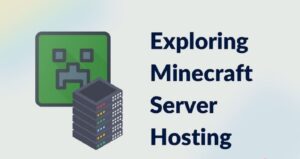Table of Contents
Free Website Builder for Small Business in the USA
In today’s digital age, having an online presence is not just an option; it’s necessary for small businesses in the United States and worldwide. Whether you’re a local bakery, a startup consultancy, or an artisanal craft shop, having a well-designed website can significantly impact your visibility, credibility, and growth. The good news is that creating a website for your small business no longer requires a hefty budget or coding skills. Thanks to many free website builders, you can craft a professional and user-friendly site without spending a dime on web development.
In this blog, we’ll embark on a journey to explore the top free website builders tailored for small businesses in the USA. We’ll delve into their features, customization options, and overall suitability to help you make an informed choice in establishing your digital storefront. So, let’s roll up our sleeves and discover how these website builders can empower your small business’s online presence.
Here are 10 of the best free website builders for small businesses in the USA, along with their key features:
1-Wix
Wix is a popular website builder that offers a wide range of features and templates, making it a good option for businesses of all sizes. It also offers a free plan with a custom domain, 100GB of storage, and 500MB of bandwidth.
Here are some of the pros and cons of using Wix:
Pros:
- Easy to use: Wix is a drag-and-drop website builder to create a website without coding experience.
- Wide range of features: Wix offers a wide range of features, including a custom domain, templates, and ecommerce capabilities.
- Free plan: Wix offers a free plan with a custom domain, 100GB of storage, and 500MB of bandwidth.
- Good customer support: Wix offers good customer support, including 24/7 live chat and email support.
Cons:
- Can be expensive: Wix’s paid plans can be expensive, especially for businesses with high traffic.
- Not as customizable as some other website builders: Wix’s templates can be limiting, and it can be difficult to change the code.
- Can be slow: Wix websites can be slow, especially if you have a lot of traffic.
Overall, Wix is a good option for businesses looking for an easy-to-use website builder with many features. However, it is important to consider the cost and the level of customization before you choose Wix.
Here are some additional things to keep in mind when using Wix:
- Wix’s templates can be limiting, so it is important to choose a template that is right for your business.
- It can be difficult with Wix if you need to make changes to the code.
- Wix websites can be slow, so optimizing your website for speed is important.
2- Weebly
Great choice! Weebly is a famous website builder known for its user-friendly interface and versatility. Here’s more information about Weebly and why it can be a good option for small businesses in the USA:
Key Features of Weebly:
- Drag-and-Drop Builder: Weebly’s drag-and-drop editor makes creating professional-looking websites easy for users with no coding experience. You can customize the layout, add text, images, videos, and forms, and rearrange them effortlessly.
- Templates: Weebly offers a variety of professionally designed templates that you can use as a starting point for your website. These templates are mobile-responsive, ensuring your site looks good on all devices.
- eCommerce Capabilities: If you plan to sell products online, Weebly’s eCommerce features are robust. You can set up an online store, manage inventory, accept payments, and even integrate with popular payment gateways like PayPal and Stripe.
- SEO Tools: Weebly provides basic SEO tools to help improve your website’s visibility in search engines. You can customize meta tags, titles, and descriptions for each page.
- Free Plan: Weebly offers a free plan that allows you to build and publish a basic website. However, it comes with Weebly-branded domain names and limited features. Testing the platform before committing to a paid plan is a good way.
- Paid Plans: Weebly offers various paid plans with additional features, including a custom domain name, advanced eCommerce tools, and more storage. These reasonably priced plans make Weebly an affordable option for small businesses.
- App Center: Weebly has an App Center with various third-party apps and integrations, allowing you to add functionality to your website, such as social media sharing, marketing tools, and analytics.
- Customer Support: Weebly offers customer support through email, chat, and a community forum. Paid plans come with priority support.
Weebly is particularly suitable for small businesses and entrepreneurs who want to create a professional website without the complexity of coding. Whether you need a simple informational site or a fully functional online store, Weebly provides the tools to help you get started and grow your online presence. Plus, its user-friendly interface ensures you can easily manage and update your website as your business evolves.
3- Squarespace
Squarespace is a website builder known for its sleek, modern templates and its focus on design. It offers a free 14-day trial, but its monthly plans start at $12.
Here are some of the pros and cons of using Squarespace:
Pros:
- Beautiful templates: Squarespace has some of the most beautiful templates available, making it a good option for businesses that want a stylish website.
- Easy to use: Squarespace is easy to use, even if you don’t have any coding experience.
- Good customer support: Squarespace offers good customer support, including 24/7 live chat and email support.
- Mobile-friendly: Squarespace websites are mobile-friendly and look good on any device.
Cons:
- Can be expensive: Squarespace’s plans can be expensive, especially for businesses with high traffic.
- Not as customizable as some other website builders: Squarespace’s templates can be limiting, and it can be difficult to change the code.
- Lack of features: Squarespace lacks some features available in other website builders, such as adding an online store.
Squarespace is a good option for businesses looking for a stylish and easy-to-use website builder. However, it is essential to consider the cost and the level of customization before you choose Squarespace.
Here are some additional things to keep in mind when using Squarespace:
- Squarespace’s templates can be limiting, so it is essential to choose a template that is right for your business.
- If you need to make changes to the code, it can be challenging to do so with Squarespace.
- Squarespace websites can be slow, so optimizing your website for speed is essential.
4- WordPress.com
WordPress.com is a popular and versatile platform for creating websites and blogs. It suits many users, including individuals, bloggers, small businesses, and even larger organizations. Here are some key features and reasons why WordPress.com may be a good choice for your website:
- Ease of Use:WordPress.com offers a user-friendly interface that makes creating and managing websites relatively easy, even if you have little to no technical experience. Its intuitive block editor allows for easy content creation and customization.
- Customization:WordPress.com provides a wide selection of free and premium themes, allowing you to customize the look and feel of your website. You can also further personalize your site with custom CSS.
- Blogging:WordPress.com originated as a blogging platform and continues to excel in this area. It offers powerful blogging features, including post scheduling, categories, tags, and comment management.
- Mobile Responsiveness:Themes on WordPress.com are mobile-responsive, ensuring that your website looks and functions well on all devices, including smartphones and tablets.
- Community and Support:The WordPress.com community is vast and supportive, and you can find answers to many questions in forums and documentation. Paid plans also include access to customer support.
- SEO Tools:WordPress.com has built-in SEO features that help optimize your website for search engines. You can control metadata, permalinks, and more to improve your site’s search visibility.
- Media Handling:WordPress.com handles various media types, making it suitable for websites that rely heavily on images, videos, and audio.
- Domain and Hosting:WordPress.com offers domain registration and hosting, simplifying the process of getting your site online. You can also use your existing domain if you have one.
- E-Commerce:While WordPress.com is primarily known for blogging and content websites, it does offer e-commerce capabilities with its Business plan. You can integrate popular e-commerce plugins like WooCommerce for selling products.
- Scalability:WordPress.com is scalable and can accommodate growing websites. You can start small and expand your website’s features and functionality.
- Cost:WordPress.com offers a range of plans, including a free plan, which is a great way to get started with a basic website. Paid plans unlock additional features and customization options.
- Multilingual Support:WordPress.com supports multiple languages, allowing you to create content in various languages and target a global audience.
WordPress.com is a versatile platform that can be adapted to various website needs. It’s particularly well-suited for bloggers, content creators, and small businesses seeking a balance between ease of use and customization options. If you’re looking for a platform with a strong community and a wide range of features, WordPress.com is worth considering.
5- Google Sites
Google Sites is a free website builder that Google offers. It is easy to use and offers good features, including a custom domain, 10GB of storage, and 100,000 visits per month.
Here are some of the pros and cons of using Google Sites:
Pros:
- Free: Google Sites is free to use, making it a good option for businesses on a budget.
- Easy to use: Google Sites is easy to use, even if you don’t have any coding experience.
- Good customer support: Google offers good customer support, including 24/7 live chat and email support.
- Mobile-friendly: Google Sites websites are mobile-friendly and look good on any device.
Cons:
- Limited features: Google Sites offers limited features, such as adding an online store.
- Not as customizable as some other website builders: Google Sites’ templates can be limiting, and it can be difficult to change the code.
- Can be slow: Google Sites websites can be slow, especially if you have a lot of traffic.
Overall, Google Sites is a good option for businesses seeking a free, easy-to-use website builder. However, it is essential to consider the level of customization and the speed before you choose Google Sites.
Here are some additional things to keep in mind when using Google Sites:
- Google Sites’ templates can be limiting, so it is essential to choose a template that is right for your business.
- If you need to make changes to the code, it can be not easy with Google Sites.
- Google Sites websites can be slow, so optimising your website for speed is important.
6- Zyro
Zyro is a relatively new website builder and e-commerce platform that aims to simplify creating and managing websites for individuals, entrepreneurs, and small businesses. Here are some key features and reasons why Zyro might be a good choice for your website needs:
- Artificial Intelligence (AI):Zyro’s standout feature is its AI-driven website builder. It can generate a website based on your preferences and content input, making it an excellent choice for users who want to create a website quickly and easily.
- User-Friendly Interface:Zyro offers an intuitive and user-friendly drag-and-drop editor that allows you to easily customize your website’s layout, content, and design elements. No coding skills are required.
- Templates:Zyro provides a collection of modern and mobile-responsive templates. These templates cover a variety of industries and can serve as a starting point for your website’s design.
- E-Commerce Features:Zyro includes built-in e-commerce tools, making it suitable for businesses selling products online. You can set up an online store, manage products, and accept payments.
- SSL Security:All Zyro websites have SSL certificates, ensuring secure data transmission and enhancing visitor trust.
- Blogging:Zyro offers blogging capabilities, allowing you to effectively create and manage blog posts. This is useful for content marketing and engaging with your audience.
- Pricing:Zyro offers competitive pricing, including a free plan with basic features, making it accessible to users with varying budgets. Paid plans unlock more advanced features and customization options.
- Multilingual Support:Zyro supports multiple languages, enabling you to create multilingual websites and reach a global audience.
- Customer Support:Zyro provides customer support through email and chat. Paid plans come with priority support for quicker assistance.
- Scalability:While Zyro is suitable for small businesses and individuals, it also offers the flexibility to scale your website as your needs grow. You can upgrade to higher-tier plans to access additional features.
- Marketing Tools:Zyro includes marketing features such as SEO optimization and integration with Google Analytics to help you drive traffic and monitor your website’s performance.
- Domain and Hosting:Zyro offers domain registration and hosting services, simplifying getting your website up and running.
Zyro’s AI-driven approach sets it apart from many other website builders by streamlining the website creation process. If you value simplicity, speed, and ease of use, Zyro is worth considering, particularly for small businesses and individuals looking to quickly establish a professional online presence. However, evaluating its features against your website requirements and comparing pricing options before deciding is essential.
7- GoDaddy
GoDaddy is a well-known domain registrar that also offers a website builder. Its free plan is limited, but it can be a good option if you only need a basic website.
Here are some of the pros and cons of using GoDaddy’s website builder:
Pros:
- Easy to use: GoDaddy’s website builder is easy to use, even if you need to gain coding experience.
- Wide range of features: GoDaddy’s website builder offers a wide range of features, including a custom domain, templates, and ecommerce capabilities.
- Good customer support: GoDaddy offers good customer support, including 24/7 live chat and email support.
Cons:
- Free plan is very limited: GoDaddy’s free plan is very limited, and you will need to upgrade to a paid plan if you want to add more features or pages.
- Not as customizable as some other website builders: GoDaddy’s templates can be limiting, and it can be difficult to change the code.
- Can be slow: GoDaddy websites can be slow, especially if you have a lot of traffic.
Overall, GoDaddy’s website builder is a good option for businesses looking for an easy-to-use website builder with a free plan. However, it is essential to consider the limited features and the speed before you choose GoDaddy.
Here are some additional things to keep in mind when using GoDaddy’s website builder:
- GoDaddy’s free plan is very limited, so it is important to choose a plan that is right for your business.
- If you need to make changes to the code, it can be not easy with GoDaddy’s website builder.
- GoDaddy websites can be slow, so optimising your website for speed is important.
8- HostGator
HostGator is a well-established web hosting company known for its hosting services, including shared hosting, dedicated hosting, VPS hosting, and more. While HostGator primarily offers hosting solutions, they also provide a website builder called “Gator Website Builder” that’s designed to help users create websites easily. Here are some key features and reasons why you might consider using HostGator for your website needs:
- Web Hosting Expertise: HostGator has a strong reputation in the web hosting industry and is trusted by millions of users worldwide. Their hosting services are reliable, with a strong emphasis on uptime and customer support.
- Gator Website Builder: HostGator’s Gator Website Builder is a user-friendly tool that allows individuals and small businesses to create websites without technical expertise. It offers a drag-and-drop interface, pre-designed templates, and customization options.
- Templates: Gator Website Builder provides a selection of professionally designed templates suitable for various industries and purposes. These templates are mobile-responsive, ensuring your website looks good on all devices.
- Customization: You can customize your website’s design and layout using the Gator Website Builder’s intuitive drag-and-drop editor. Add text, images, videos, forms, and more to create a unique website.
- E-Commerce: Gator Website Builder includes e-commerce features, making it suitable for businesses selling products online. You can set up an online store, manage products, and accept payments.
- Domain Registration: HostGator offers domain registration services, allowing you to register a custom domain name for your website directly through their platform.
- Web Hosting Plans: Besides the website builder, HostGator offers a range of hosting plans, including shared hosting, dedicated hosting, VPS hosting, and more. This means you can easily upgrade your hosting as your website grows.
- Customer Support: HostGator provides 24/7 customer support through various channels, including live chat, email, and phone. Their support team can assist with hosting-related issues and questions about the website builder.
- Pricing: HostGator offers competitive pricing for hosting plans and the Gator Website Builder. They also have occasional promotions and discounts that can provide cost savings.
- Scalability: HostGator’s hosting services are scalable, making them suitable for businesses and websites of all sizes. You can start with shared hosting and upgrade to more advanced solutions as your needs grow.
HostGator’s combination of hosting services and the Gator Website Builder makes it a comprehensive solution for individuals and businesses looking to establish an online presence. It’s especially suitable for those who want a single provider for hosting and website-building tools. However, remember that while the Gator Website Builder is user-friendly, it may offer a different level of design flexibility and features than dedicated website builders like WordPress or Squarespace, so evaluate your specific needs before choosing.
9- Webflow
Webflow is a website builder that is known for its flexibility and power. It is a more advanced website builder than some of the others on this list, and it is designed for designers and developers. It offers a free trial, but its monthly plans start at $12.
Here are some of the pros and cons of using Webflow:
Pros:
- Flexible: Webflow is a very flexible website builder, so you can create any website you can imagine.
- Powerful: Webflow is a powerful website builder so that you can have complete control over the look and feel of your website.
- Code-free: Webflow is a code-free website builder, so you don’t need to know how to code to create a website.
- Mobile-friendly: Webflow websites are mobile-friendly and will look good on any device.
Cons:
- Can be expensive: Webflow’s plans can be expensive, especially for businesses with high traffic.
- Learning curve: Webflow has a learning curve, so it may not be the best option for beginners.
- Not as many templates: Webflow does not have as many templates as some other website builders.
Overall, Webflow is a good option for businesses looking for a flexible and powerful website builder. However, it is important to consider the cost and the learning curve before you choose Webflow.
Here are some additional things to keep in mind when using Webflow:
- Webflow is a code-free website builder, but you can still access the code if needed.
- Webflow has a learning curve, but many resources are available to help you learn how to use it.
- Webflow websites are mobile-friendly, but you can also create custom mobile experiences.
10- Jimdo
Jimdo is a website builder platform that aims to make website creation easy and accessible for individuals and small businesses. Here are some key features and reasons why you might consider using Jimdo for your website needs:
- Ease of Use: Jimdo offers a straightforward and user-friendly website building experience. Its intuitive drag-and-drop editor allows users to create and customize websites without coding skills.
- Templates: Jimdo provides a variety of templates, including industry-specific designs, that can serve as a starting point for your website. These templates are mobile-responsive, ensuring your site looks good on all devices.
- Customization: With Jimdo, you can easily customize your website’s design, layout, and content. Add text, images, videos, forms, and other elements to create a personalized site.
- E-Commerce: Jimdo offers e-commerce capabilities, making it suitable for businesses selling products online. You can set up an online store, manage products, and process payments.
- Blog Functionality: Jimdo includes built-in blogging features, allowing you to effectively create and manage blog posts. This is useful for content marketing and engaging with your audience.
- SEO Tools: Jimdo provides basic SEO features to help optimize your website for search engines. You can customize meta titles, descriptions, and URLs for better search visibility.
- Domain and Hosting: Jimdo offers domain registration services, and hosting is included in their plans, simplifying the process of getting your website online.
- Customer Support: Jimdo provides customer support through email and a knowledge base. Paid plans typically come with priority support for quicker assistance.
- Pricing: Jimdo offers a range of pricing plans, including a free plan with basic features. Paid plans unlock additional features and customization options. They also have a transparent and straightforward pricing structure.
- Multilingual Support: Jimdo supports multiple languages, allowing you to create multilingual websites and reach a global audience.
- Scalability: While Jimdo is suitable for individuals and small businesses, it also provides the flexibility to scale your website as your needs grow. You can upgrade to higher-tier plans to access more advanced features.
Jimdo is a solid choice for a hassle-free website-building experience. It’s particularly suitable for individuals, bloggers, and small businesses looking to establish an online presence without the complexity of coding or design. However, remember that Jimdo may offer a different level of design flexibility and advanced features than other website builders, so evaluating whether its offerings align with your specific website requirements is essential.
How to choose the best free website builder for your small business
Choosing the best free website builder for your small business can be daunting, as many options are available. Here are some factors to consider when making your decision:
- Your budget: How much will you spend on a website builder? Free website builders typically have some limitations, such as limited storage space or bandwidth. You may need to upgrade to a paid plan if you need more features or storage.
- Your needs: What features do you need in a website builder? Do you need the ability to sell products online? Do you need to create a blog? Do you need a custom domain name? Make sure to choose a website builder that has the features you need.
- Your level of technical expertise: How much experience do you have with website design and development? If you are a beginner, choose a website builder that is easy to use and has a drag-and-drop interface. If you have more experience, you may want a website builder that gives you more control over the code.
- The features offered: Some of the features offered by free website builders include:
- Templates: Free website builders typically offer a variety of templates to choose from, so you can create a website that looks professional without having to start from scratch.
- Drag-and-drop interface: A drag-and-drop interface makes adding and moving content on your website easy.
- Custom domain name: A custom domain name will make your website look more professional and help people remember it.
- Storage space: Free website builders typically offer limited storage space, so you may need to upgrade to a paid plan if you need more space for images, videos, or other files.
- Bandwidth: The amount of monthly data that can be transferred to and from your website. Free website builders typically have limited bandwidth, so you may need to upgrade to a paid plan if you expect a lot of traffic to your website.
- Customer support: Choose a website builder that offers good customer support if you need help.
Tips for creating a great website with a free website builder
Here are some tips for creating a great website with a free website builder:
- Choose the right template: Your template will set the tone for your website and determine its overall look and feel. Choose a template relevant to your business that will appeal to your target audience.
- Add your own content: Once you have chosen a template, you can start adding your content. This includes text, images, videos, and other media. Ensure your content is relevant and interesting, highlighting the best aspects of your business.
- Optimize your website for search engines: Search engine optimization (SEO) makes your website more visible in search engine results pages (SERPs). You can do several things to optimize your website for SEO, such as using relevant keywords and phrases in your content, and creating backlinks to your website from other websites.
- Keep your website updated: Your website should be a living document that you update regularly with new content. This will help keep your website fresh and interesting for visitors.
- Get feedback: Once your website runs, ask for feedback from friends, family, and colleagues. This feedback can help you identify areas where you can improve your website.
Here are some additional tips that you can consider:
- Use high-quality images and videos: Images and videos can be a great way to break up your text and make your website more visually appealing. Make sure to use high-quality images and videos relevant to your business.
- Make your website mobile-friendly: More and more people use their mobile devices to access the internet. Make sure your website is mobile-friendly and easily viewed on smartphones and tablets.
- Use a responsive design: A responsive design means that your website will automatically adjust its layout to fit the screen size of its viewing device. This will make your website look good on all devices, regardless of size.
- Use a secure connection: Ensure your website uses a secure connection, such as HTTPS. This will help protect your visitors’ data from being intercepted by hackers.
I hope these tips help you create a great website with a free website builder!
The benefits of a free website builder:
There are many benefits to using a free website builder, including:
- No upfront costs: Free website builders do not require any upfront costs, so you can get started immediately without investing any money.
- Easy to use: Free website builders, even for beginners, are typically very easy to use. They typically have a drag-and-drop interface that makes adding and moving content on your website easy.
- Wide range of features: Free website builders typically offer a wide range of features, including templates, ecommerce capabilities, and blogging tools.
- Good customer support: Most free website builders offer good customer support if you need help.
Here are some of the specific benefits of using a free website builder for your small business:
- Low cost: Free website builders can be a great way to save money on your website development costs. This can be especially helpful for small businesses on a tight budget.
- Ease of use: Free website builders are typically very easy to use, even for people without experience in website design or development. This can save you time and hassle, and allow you to focus on other aspects of your business.
- Flexibility: Free website builders typically offer a variety of templates and features, so you can create a website that meets your specific needs. This can be helpful for businesses that have unique requirements.
- Scalability: Free website builders can be scaled to meet the needs of your growing business. This means that you can add more pages, features, and content as your business grows.
A free website builder is an excellent option if you want to create a website for your small business without spending much money. Just be sure to choose a builder with the necessary features and functionality.
How to get started with a free website builder:
Here are the steps on how to get started with a free website builder:
- Choose a website builder: Many free website builders are available, so take some time to compare them and choose one that is right for you. Consider factors such as the features, ease of use, and customer support.
- Sign up for a free account: Once you have chosen a website builder, you must sign up for a free account. This typically involves providing basic information, such as your name, email address, and password.
- Choose a template: Most free website builders offer a variety of templates to choose from. Choose a template relevant to your business that appeals to your target audience.
- Customize your website: Once you have chosen a template, you can start customizing your website. This includes adding your content, images, and videos. You can also change your website’s colors, fonts, and layout.
- Publish your website: You can publish it once you are happy. This will make it live and accessible to visitors.
Here are some additional tips for getting started with a free website builder:
- Start with a simple design: Try to cram only a little content onto your website. Start with a simple design and add more content as needed.
- Use high-quality images and videos: Images and videos can be a great way to break up your text and make your website more visually appealing. Make sure to use high-quality images and videos relevant to your business.
- Make your website mobile-friendly: More and more people are using their mobile devices to access the internet. Make sure your website is mobile-friendly and easily viewed on smartphones and tablets.
- Use a responsive design: A responsive design means that your website will automatically adjust its layout to fit the screen size of its viewing device. This will make your website look good on all devices, regardless of size.
- Use a secure connection: Ensure your website uses a secure connection, such as HTTPS. This will help protect your visitors’ data from being intercepted by hackers.
I hope these tips help you get started with a free website builder!
Final Note:
While each free website builder has unique features and limitations, several are versatile and user-friendly options for small business owners. Wix offers creative freedom with its drag-and-drop editor, Weebly excels in simplicity and e-commerce features, WordPress.com provides blogging prowess and scalability, and Squarespace shines with its elegant templates. HostGator’s Gator Website Builder combines hosting and website creation, Zyro boasts AI-driven simplicity, Jimdo offers ease of use and customization, and many others cater to specific needs and preferences.
Ultimately, the best free website builder for your small business depends on your goals, technical comfort level, and specific requirements. The key takeaway is this: no matter which builder you choose, your website should reflect your brand, engage your audience, and support your business objectives.
As you embark on your website-building journey, remember that success doesn’t solely rely on your tools and the creativity, dedication, and passion you invest in crafting a remarkable online presence. Regularly update your content, monitor your website’s performance, and adapt to the changing needs of your audience.






